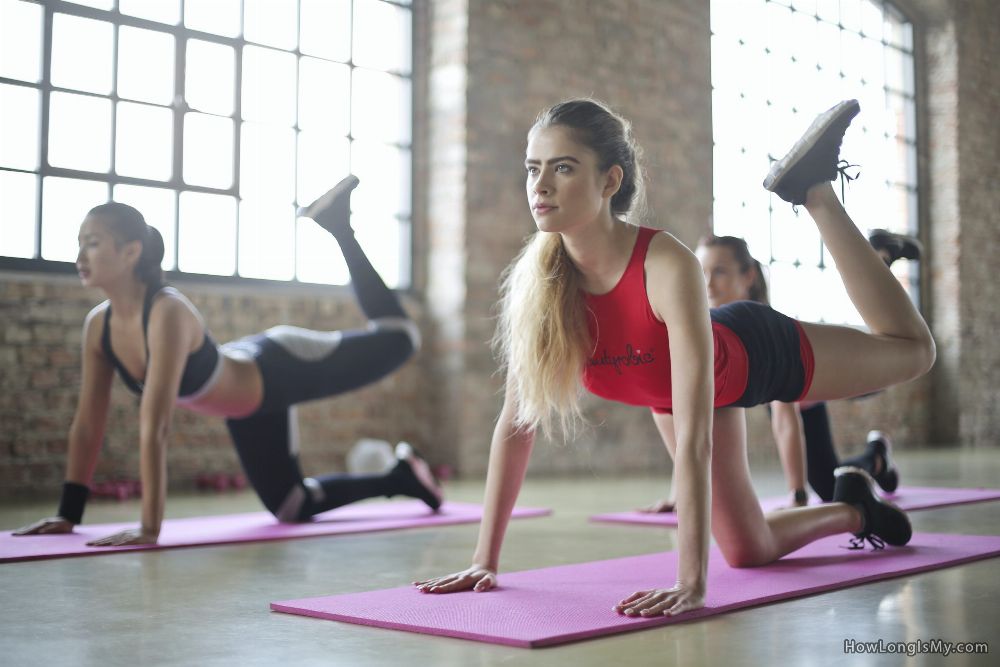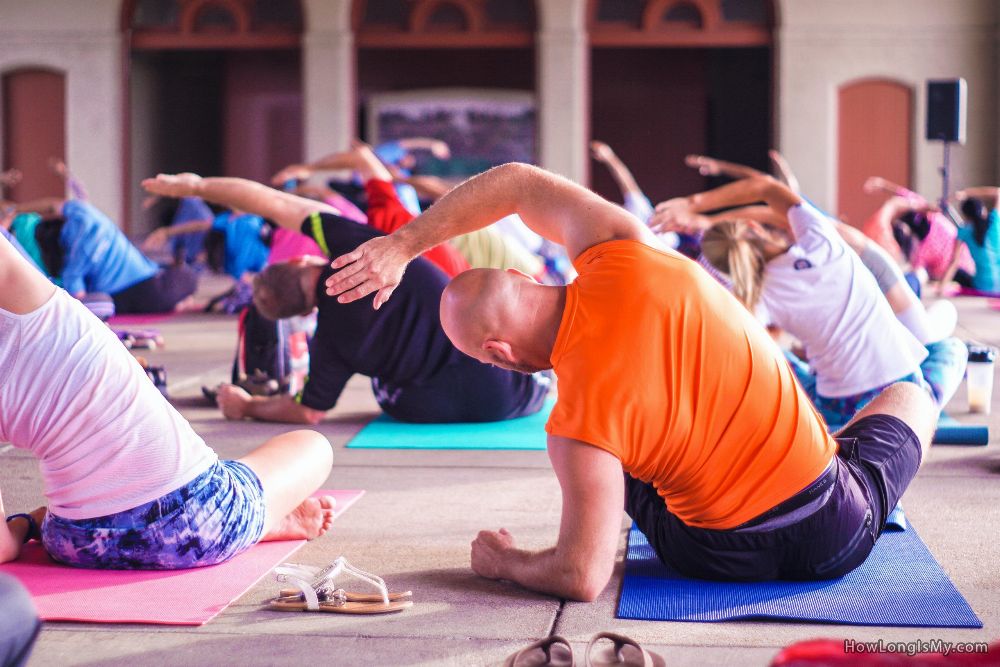The recommended duration of exercise can vary based on factors such as your fitness level, goals, and the type of exercise you’re engaging in.
Finding Your Fitness Sweet Spot: The Right Exercise Duration

Aerobic Exercise (Cardiovascular). Aim for at least 150 minutes of moderate-intensity aerobic exercise or 75 minutes of vigorous-intensity aerobic exercise per week. This can be broken down into sessions of 30 minutes, five days a week for moderate intensity, or 25 minutes, three days a week for vigorous intensity.
Strength Training. Incorporate strength training exercises at least two days a week. Sessions can last 20-60 minutes, focusing on different muscle groups on different days.
Flexibility and Mobility. Include stretching and flexibility exercises in your routine. Spend 5-10 minutes on stretching after your workouts and consider separate sessions for more focused flexibility training.
High-Intensity Interval Training (HIIT). HIIT workouts typically range from 15 to 30 minutes due to their intense nature. They involve short bursts of high-intensity exercises followed by brief recovery periods.
Duration for Beginners. If you’re just starting, begin with shorter sessions and gradually increase your exercise time as your fitness improves. Aim for at least 20-30 minutes of moderate-intensity exercise most days of the week.
Listen to Your Body. Pay attention to your body’s signals. If you’re fatigued, sore, or experiencing pain, it’s okay to adjust the duration and intensity of your workouts accordingly.
The key to successful exercise is consistency. It’s better to engage in regular, manageable workouts that you can sustain over time rather than pushing yourself too hard and risking burnout or injury. It’s a good idea to consult a healthcare professional before beginning a new exercise program, especially if you have underlying health conditions.
Mastering the Clock: Customizing Your Exercise Duration
 The right exercise duration is a crucial aspect of creating an effective and sustainable fitness routine. Let’s delve deeper into the topic to provide more insights.
The right exercise duration is a crucial aspect of creating an effective and sustainable fitness routine. Let’s delve deeper into the topic to provide more insights.
Individual Variability
The ideal exercise duration can vary widely among individuals due to factors such as age, fitness level, health status, and personal goals. What works for one person may not work for another. It’s essential to consider your unique circumstances when determining the right duration for your workouts.
Type of Exercise
The type of exercise you’re engaging in plays a significant role in determining the appropriate duration. Cardiovascular exercises like running, cycling, and swimming typically require longer durations to achieve the desired benefits. On the other hand, high-intensity interval training (HIIT) can deliver efficient results in shorter timeframes.
Intensity Matters
Intensity is a crucial factor when considering exercise duration. Higher-intensity workouts can often be shorter because they place more demand on your cardiovascular system and muscles. However, they might also require more recovery time. Lower-intensity exercises like walking or gentle yoga can be done for longer periods without causing excessive fatigue.
Balancing Frequency and Duration
If you find it challenging to dedicate long chunks of time to exercise, consider spreading your workouts throughout the week. Shorter sessions on more days can be just as effective as longer workouts done less frequently. Consistency is key, so find a balance that fits your schedule.
Goal Orientation
 Your fitness goals can influence how long your workouts should be. If you’re aiming for weight loss, longer cardio sessions can help create a calorie deficit. For muscle building, incorporating strength training with appropriate rest periods is crucial. Flexibility and mobility training can be done daily in shorter sessions.
Your fitness goals can influence how long your workouts should be. If you’re aiming for weight loss, longer cardio sessions can help create a calorie deficit. For muscle building, incorporating strength training with appropriate rest periods is crucial. Flexibility and mobility training can be done daily in shorter sessions.
Overtraining and Recovery
It’s essential to avoid overtraining, which can lead to burnout, injuries, and negative health effects. Listen to your body’s signals. If you’re feeling excessively fatigued, irritable, or noticing a decline in performance, it might be a sign that you need more recovery time.
Progression
As your fitness improves, you might naturally find that you’re able to exercise for longer periods without feeling as fatigued. Gradually increasing the duration of your workouts can help you continue challenging your body and making progress.
Enjoyment and Lifestyle
 Ultimately, the right exercise duration is one that you enjoy and can maintain over the long term. Your exercise routine should enhance your life, not become a burden. If you dread long workouts, consider shorter, more frequent sessions that you look forward to.
Ultimately, the right exercise duration is one that you enjoy and can maintain over the long term. Your exercise routine should enhance your life, not become a burden. If you dread long workouts, consider shorter, more frequent sessions that you look forward to.
In conclusion, determining the right exercise duration involves considering various factors and tailoring your routine to your individual needs and goals. Experiment with different durations and types of exercise to find what works best for you, and don’t hesitate to seek guidance from fitness professionals or healthcare providers if needed. Remember that consistency and gradual progress are key components of a successful fitness journey.
